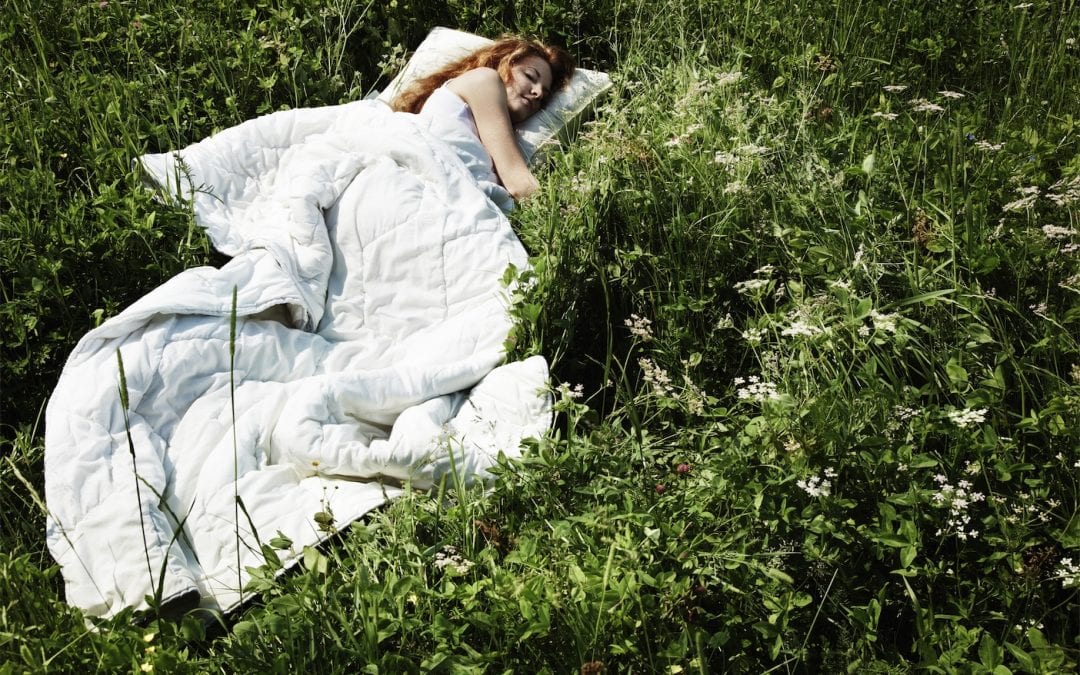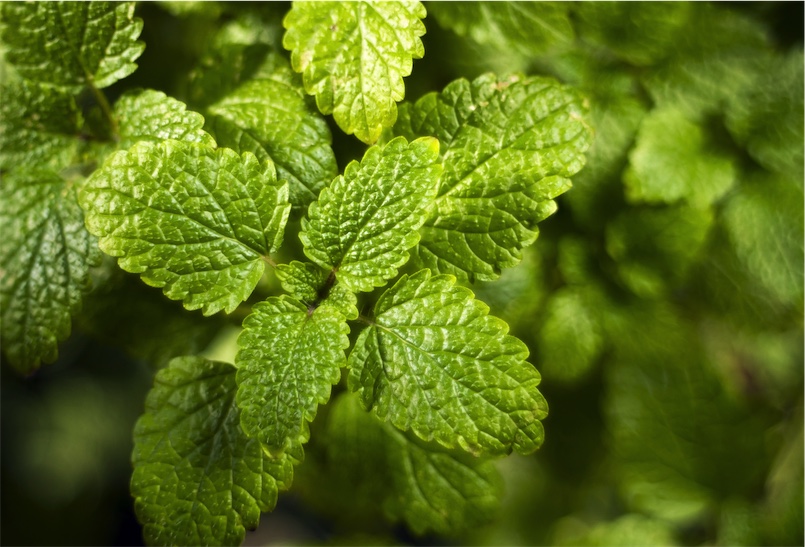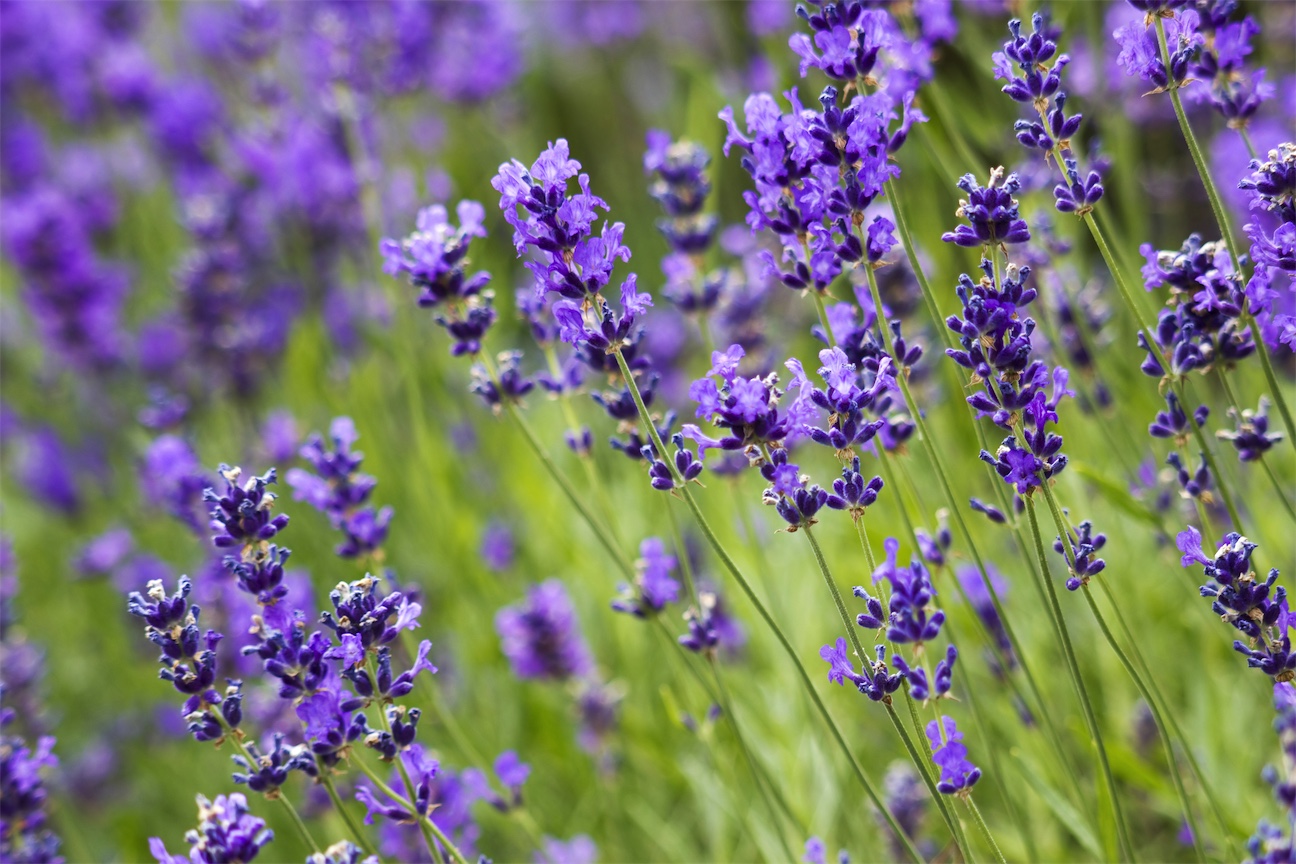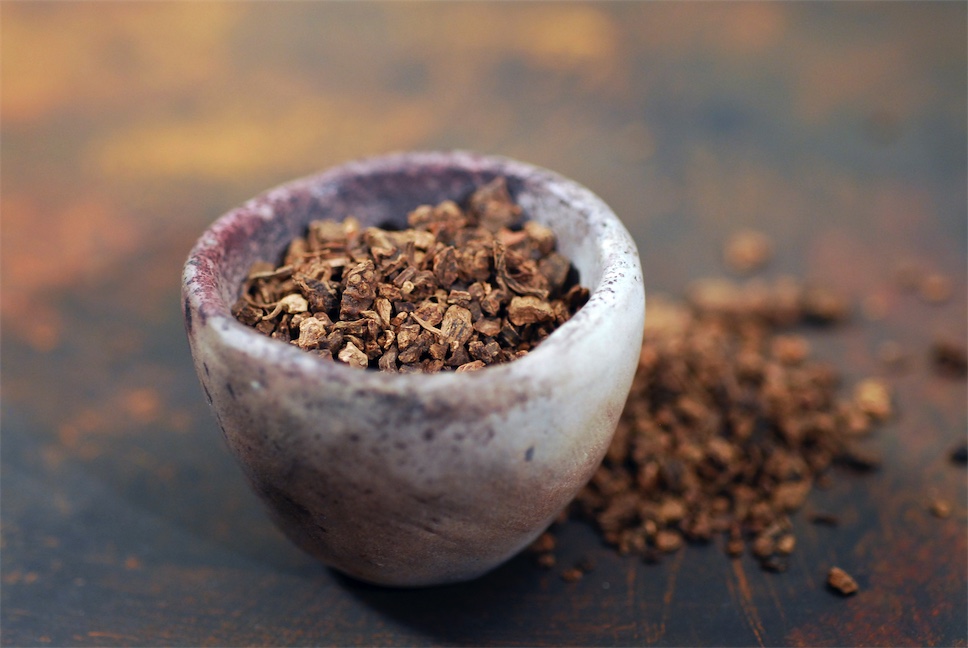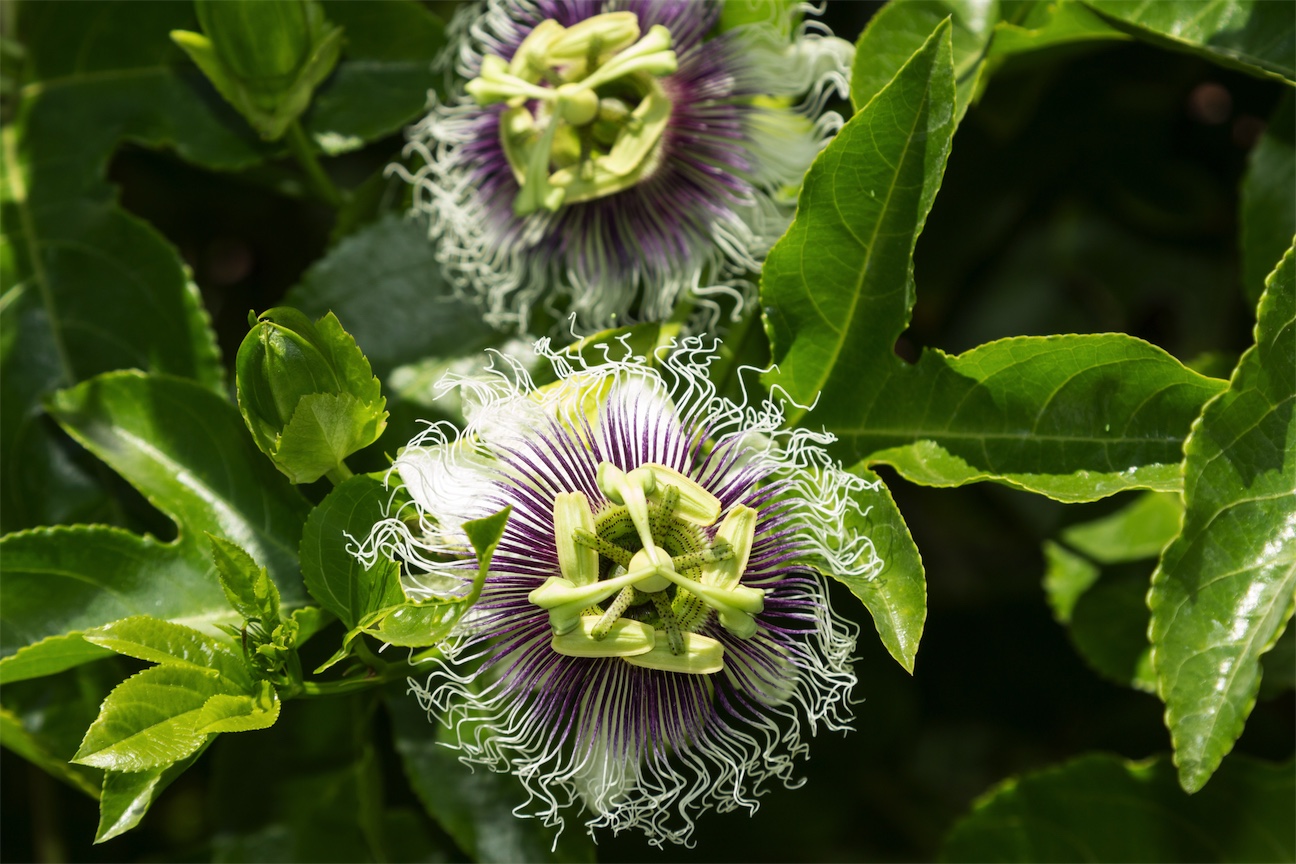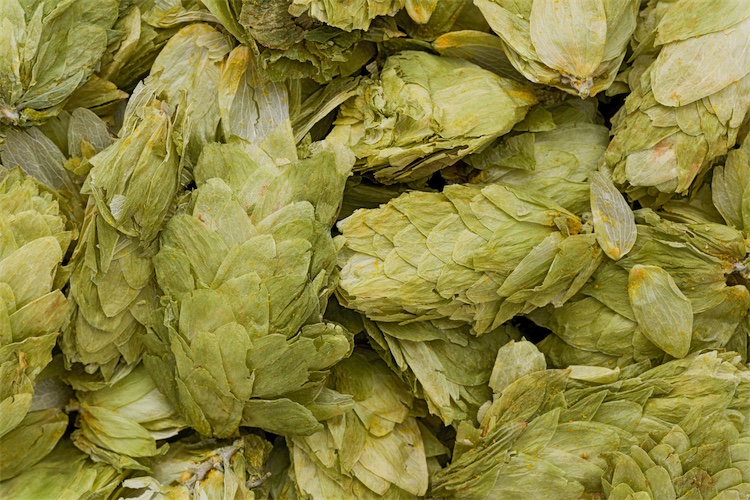Judging by the length of history many herbs have with helping us to sleep, we humans have always struggled to get quality shut-eye. Although there is a cupboard full of herbs for sleep I have chosen my five
A note on safety
These herbs are generally safe for most people. However, if you have a medical condition, are pregnant or breastfeeding, please get professional advice before using. It is not recommended to use these herbs for sleep alongside pharmaceutical sedatives.
Lemon Balm
Lemon balm (Melissa officinalis) is a herb in the mint family with over one thousand years of use medicinally.
Although classified as a “sedative” lemon balm won’t knock you out like a pharmaceutical sleeping pill. It’s more of a nervous system relaxant so it can also be used during the day to help keep the mind calm. In addition to helping promote sleep, is also useful for reducing anxiety, stress and helping improve mood. Lemon balm works quite quickly so it may also help people who experience panic attacks.
The person picture for lemon balm is someone who is overworked, tightly wound up and gets digestive distress when they are overwhelmed. It is particularly useful for children who are having trouble winding down for sleep and women transitioning through perimenopause who are getting woken up with night sweats. Lemon balm can benefit just about any sleep problem related to an overactive mind.
The science
Lemon balm works by inhibiting an enzyme
A 2010 study showed a 42% reduction in insomnia after taking 600mg/day of a lemon balm extract
How to use it
Lemon balm is easy to grow, even by brown thumbs, and the leaves can be used in salads or as a
This is one herb that is beneficial as a tea either made with the fresh leaves or dried. You’ll need about 2g of the dried leaf for an effective dose.
Lavender
Most of us are familiar with the distinctive smell of lavender (Lavendula
As well as being sedative and mood enhancer, lavender also helps reduce the pain of minor wounds, bites
The person picture of lavender is someone having trouble sleeping, due to exhaustion or depression. It has a particular affinity for the very young or the very old.
The science
A lavender essential oil patch applied to the temple saw an improvement in sleep quality. The effects were maintained for two weeks after discontinuing suggesting a rebalancing effect on the sleep cycle 3.
A 2005 study found lavender increased restorative slow-wave sleep and improved
Lavender’s ability to enhance mood seems to be due to its capacity to bind to the serotonin transporter increasing serotonin in the hippocampus 5.
How to use it
Lavender is most often used topically as an essential oil, but it can also be used as a tincture or tea. Lavender has a strong taste, so a little goes a long way if you are using it as a tea blend.
Valerian
Often referred to as an “herbal
Even though the dried herb does smell a little like sweaty socks or wet dog don’t let this put you off. It’s probably my most loved herb for sleep. Valerian helps you go to sleep faster, decreases night awakenings and can also give you some pretty vivid dreams. Unlike sleeping pills, there is no
The person picture for valerian is someone feels the cold, restless, tight muscles, trouble both going to sleep and staying asleep due to anxious thoughts. In people with hot constitutions, valerian can cause hyperactivity or headaches.
The science
Again, valerian relaxes the nervous system by working on increasing the activity of GABA receptors and slowing down the breakdown of GABA 7.
Studies have shown valerian increases sleep efficiency and
Three grams of the dried herb had a similar effect to the benzodiazepine, oxazepam on sleep and it has also been used to reduce the side effects of
Valerian can be used as a tincture, capsule or tea. Valerian should not be used continuously for more than a few weeks.
Passionflower
Passionflower (Passiflora incarnata) is the herb to use when you can’t get to sleep because thoughts keep racing around in your head. You are in an endless loop of recapping the day events and figuring out solutions to non-existent problems.
Passionflower is beneficial to get you off to sleep and keep you asleep. If your sleep is related to worry or anxiety, then this is the herb for you. Passionflower gives you a deeper sleep, reduces restlessness and calms the chatty mind.
Passionflower is nervous system relaxant, and if you’re the kind of person who has been running on adrenaline/ high cortisol (Type A), you might find taking passionflower during the makes you feel a little sleepy. Passionflower helps reduce these substances. This is also why passionflower can help lower blood pressure – if it was caused by excess adrenaline/stress. Like lemon balm, the effects of passionflower is
The Science
Passionflower effects are due to its actions on the GABA receptors. Passionflower also contains GABA. However, the jury is out as to how much this contributes to the pool of GABA produced in the body
An Australian trial of 41 people who took passionflower tea (1 cup per day for a week) found it improved sleep quality compared with placebo 9.
Hops
Most of us would associate hops (
The person picture of hops is someone who is restless, anxious, retains fluid and may experience night sweats. It is particularly useful for someone who has difficulty falling asleep.
The science
Like many other herbs for sleep, hops increase the activity of GABA. They also increase your sleep drive due to an interaction with adenosine receptors 11. Adenosine is a chemical, which builds up in your brain during the day and makes you feel sleepy. Hops also interact with melatonin receptors. Research in animals shows this reduces core body temperature, one of the conditions required for sleep12.
How to use it
While it might be tempting to get your dose of hops with beer, the best way to use hops for sleep is to consume as a tea or a tincture. Hops are very bitter and often combined with other herbs to make them more palatable.
How to prepare your herbal tea
These five herbs for sleep combine very nicely together in a tea. You can experiment with the ratio which suits your taste buds, but one I like to use is:
- 3 parts lemon balm
- 3 parts passionflower
- 2 parts hops
- 1 part lavender
- 1 part valerian
Place 2-3 teaspoons per 250mL of boiling water and steep in a covered container (teapot) for 10 minutes. Drink 30 minutes before bed. Sweeten with a little honey or stevia leaf if required.
Sweet dreams!
Got any of you
References:
- Sarris J, McIntyre E, Camfield D a. Plant-based medicines for anxiety disorders, part 2: a review of clinical studies with supporting preclinical evidence. CNS Drugs. 2013;27(4):301-319.
doi :10.1007/s40263-013-0059-9. - Roller M, Sukkar SG, Cases J, Ibarra A, Feuillere N. Pilot trial of Melissa officinalis L . leaf extract in the treatment of volunteers suffering from mild-to-moderate anxiety disorders and sleep disturbances. Mediterr J Nutr Metab. 2011;4:211-218.
doi :10.1007/s12349-010-0045-4. - Lillehei AS, Halco LL, Savik K, Reis R. Effect of Inhaled Lavender and Sleep Hygiene on Self-Reported Sleep Issues : A Randomized Controlled Trial. J Altern Complement Med. 2015;21(7):430-438.
doi :10.1089/acm.2014.0327. - Goel N, Kim H, Lao R. An Olfactory Stimulus Modifies Nighttime Sleep in Young Men and Women. Chronobiol Int. 2005;5(October):889-904.
doi :10.1080/07420520500263276. - López V, Nielsen B, Solas M, Ramírez MJ, Jäger AK. Exploring Pharmacological Mechanisms of Lavender ( Lavandula angustifolia ) Essential Oil on Central Nervous System Targets. Front Pharmacol. 2017;8(May):1-8.
doi :10.3389/fphar.2017.00280. - Murti K, Kaushik M, Sangwan Y, Kaushik A, Murti K. Pharmacological Properties of Valeriana Officinalis – A review. Pharmacol Online. 2011;3:641-646.
- Head
K a , Kelly GS. Nutrients and botanicals for treatment of stress: adrenal fatigue, neurotransmitter imbalance, anxiety, and restless sleep. Altern Med Rev. 2009;14(2):114-140. http://www.ncbi.nlm.nih.gov/pubmed/19594222. Accessed May 21, 2014. - Cuellar N, Ratcliffe S. Does valerian improve sleepiness and symptom severity in people with restless legs syndrome? Altern Complement Ther. 2009;14(2):22-28.
doi :10.1111/trf.13253. - Ngan A, Conduit R. A
Double ‐ blind , Placebo ‐ controlled Investigation of the Effects of Passi fl oraincarnata ( Passionfl ower ) Herbal Tea on Subjective Sleep Quality.Phyther Res. 2011;1159(June 2010):1153-1159. - Biendl M. Hops and health. Master Brew Assoc
Amercia – Q J. 2009;46. - Sánchez CL. The sedative effects of hops ( Humulus lupulus
) , a component ofbeer , on theactivity / rest rhythm. Acta Physiol Hung. 2012;99(July):133-139.doi :10.1556/APhysiol.99.2012.2.6. - Butterweck V, Brattström A, Butterweck V, Brattstroem A, Grundmann O. Hypothermic effects of hops are antagonized with the competitive melatonin receptor antagonist
luzindole antagonistluzindole in mice. J Pharm Pharmacol. 2007;(December):549-552.doi :10.1211/jpp.59.4.0009.

Need help with your sleep?
Norelle Hentschel is an experienced Naturopath with a clinic in Stones Corner, Brisbane who enjoys supporting her clients to reach their health goals.
Want more articles like this?
Receive a monthly digest of natural health information to help you become “health” sufficient!
PS. Your inbox real estate is precious, and we will never annoy you with sales pitches or share your details with anyone else. One email a month — that’s it.

